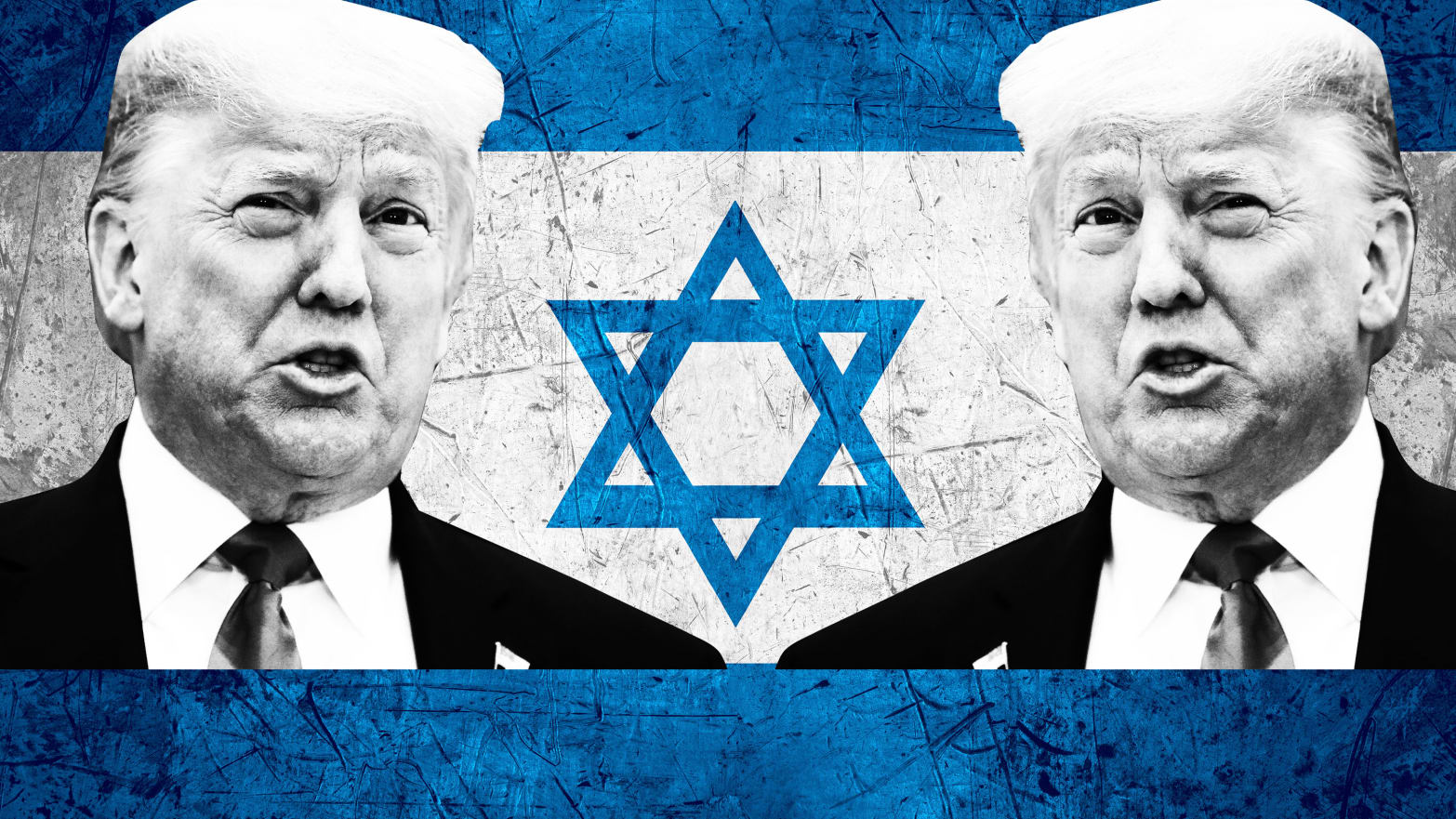He sees every foreign-policy relationship as a transaction: How much does the U.S. pay, and what does it get in return? Don’t think he won’t do the same with Israel.
Seth Frantzman
Updated Jan. 27, 2020
JERUSALEM—President Donald Trump is pushing a new peace plan and trying to show how pro-Israel he is by sidelining the Palestinian leadership. But at the same time the United States is retreating from other areas of the Middle East, letting Russia and Turkey make plays for greater influence, and it’s ever more apparent that Trump’s view of U.S. policy is narrow, unilateral and transactional.
If Trump sees Israel through that same lens of dollar and cents costs and benefits, the bottom line could put Israel’s long-term interests in jeopardy.
Trump makes no secret of his interest in ending the U.S. involvement in “endless wars” and letting local powers do more. He has also supported European countries or others taking the place of U.S. forces in areas like Syria. There, he has withdrawn from areas, claimed to have “secured the Oil,” and then said Kurds and Turks should fight it out among themselves.
In contrast to President George H.W. Bush’s holistic “new world order,” this is a U.S. foreign policy whittled down to the absolute minimum. It jettisons both idealism and realism in favor of “let’s make a deal.” Washington even demands foreign countries pay for U.S. troops to remain, or risk losing their protection.
Meanwhile, this administration has paid lip-service to pushing the most pro-Israel policies in U.S. history. That has included recognizing Jerusalem as Israel’s capital, recognizing the Golan as part of Israel, reversing course on legal views of Israeli control of the West Bank as inconsistent with international law, ending support for UNRWA (the Palestinian relief agency), leaving UNESCO due to its alleged anti-Israel bias, and, yes, pushing a peace plan that is supposed to be very pro-Israel.
None of these policies involve an obvious material cost to the U.S. On the contrary, they are mostly symbolic or, indeed, reduce U.S. involvement in dealing with issues like security training for Palestinians in the West Bank or U.S. AID for Palestinians scattered throughout the region.
For Israel these are auspicious times. Almost 50 world leaders gathered in Jerusalem for the World Holocaust Forum in January, showcasing Israel’s international clout.
But U.S. support is key to maintaining Israel’s qualitative military edge, keeping UN condemnations at bay, and assisting in multilateral operations such as Israel’s recent joint military Blue Flag exercise with the U.S., Italy, Germany and Greece. And Trump is basically skeptical about multilateral efforts.
The one area where the Trump administration has appeared to increase its role in the Middle East is confronting Iran. Secretary of State Mike Pompeo said on Jan. 24 that the U.S. was working with Gulf States, Israel and European countries to confront Iran.
But U.S. sanctions on Tehran are primarily an economic initiative. When it comes to military actions Trump eschewed airstrikes in June after Iran downed a drone and has only approved actions in Iraq and Syria where U.S. forces are already operating. During the draw-down of forces from Syria the U.S. indicated it might shift forces to Iraq to “watch over Iran.”
Then came the assassination of Quds Force commander Qassem Soleimani, which looks like a one-off. In the wake of the Iranian ballistic missile attack that came as retaliation, there doesn’t appear to have been a shift of U.S. forces to Iraq, even as Trump dismisses the brain injuries of dozens of U.S. troops as “headaches.”
This leaves questions about how the shift in U.S. posture to a more narrow transactional relationship in the Middle East could affect Israel in the long term.
In Syria, the Israel Defense Forces’ annual threat assessment continues to see Iranian threats emerging as Iran transfers weapons to Hezbollah. Abdicating a robust U.S. role in Syria mean Russia, Turkey and Iran, the main players in the Astana peace process, will control Syria’s future.
None of these countries are Israeli allies and Israel is particularly concerned about Turkey’s role in the region. Turkey’s decision to lay claim to Mediterranean waters off the coast of Libya in a November deal seems to lay astride Israel’s plans for a pipeline with Greece and Cyprus.
Trump appears to see traditional U.S. roles in the Middle East as a “sunk cost,” the idea that past investments do not justify further investment. The U.S. has wasted lives and treasure in the Middle East, in this analysis, and U.S. interests don’t justify more waste.
Where does Israel factor into that?
Israel receives roughly $3.8 billion a year according to a 10-year memorandum of understanding that began last year. Around 75 percent of that is spent back in the U.S. for weapons systems like the F-35.
There may come a point where Trump’s instinct to ask “what do we get out of this” will grate on the president. So far the U.S. has expressed full support for Israel’s actions against Iran. The key for Trump is that Americans not be expected to do the fighting for Israel, or for Saudi Arabia and other U.S. allies.
In the long term Washington’s decision to focus on a more narrow footprint in the Middle East, potentially outsourcing conflicts from Syria to Libya, Yemen and elsewhere to locals, will affect Israel.
The instability growing from North Africa to Afghanistan when the U.S. reduces its presence will affect Israel as it has in the past when rulers like Saddam Hussein or Gamal Abdel Nasser emerged.
That will also force Israel to compromise and foster closer relations with Russia, India and other countries to make up for a diminished U.S. role in the region.
Content retrieved from: https://www.thedailybeast.com/trump-has-a-peace-plan-but-his-mideast-policies-may-be-bad-news-for-israel?fbclid=IwAR2CIORfQ–nr9ks6_GSk951kn4IzKpT-LtbO7JA33q9idqgd1F-pz1d5gY.
